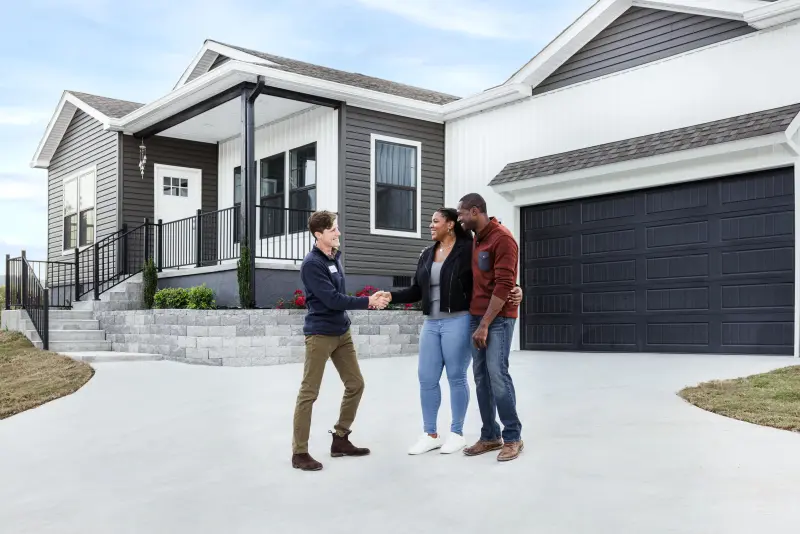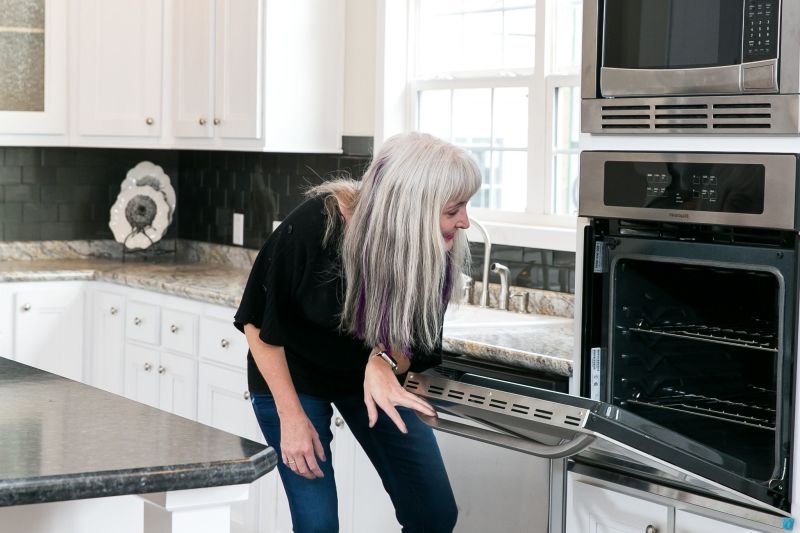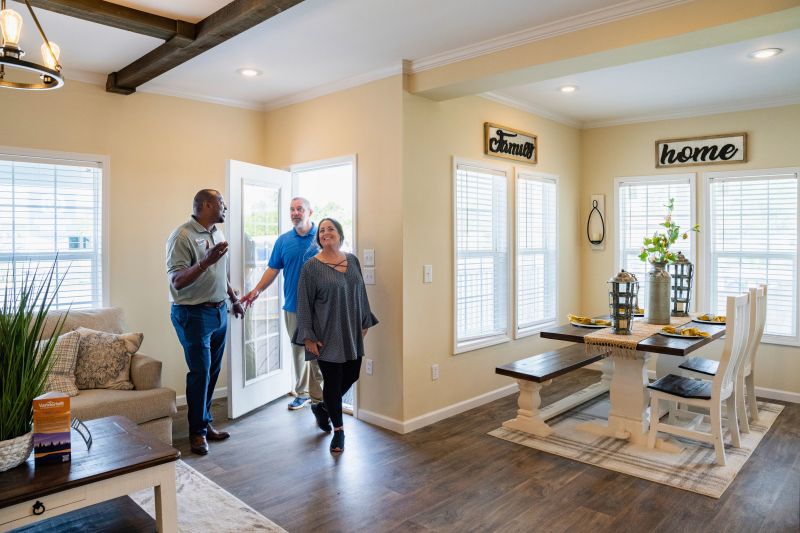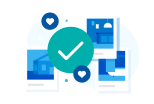Get Your Finances Ready to Buy a Home

From making a must-have home features list to considering different loan types, check out these tips to help you financially prepare for home buying.
Planning to buy a manufactured or modular home but not entirely sure how to prepare? Whether you’re a first-time home buyer or it’s just been a while since you bought a home, we can help you get ready. Follow these pre-purchase tips from the Clayton team to make sure your home buying process goes smoothly.

Key Takeaways
- Make sure to know your requirements before looking for a home, including your budget, number of bedrooms and the features. Prioritizing what you want and need helps narrow your search.
- It's suggested that you use your new budget for several months to see if the payment you expect for your house is something you can afford.
- Make sure to plan for additional costs beyond the down payment, such as closing costs.
- Have all of your documents needed on hand early to allow for a smoother loan approval process.

1. Know What You Need and Want in a Home.
Before you jump into house hunting, think about what your new home needs to have. Ask yourself questions about what kind of home you’re looking for, ranging from what floor plans you prefer to if you need spaces like a laundry room or home office. After all, you want to be happy and comfortable where you live, so seriously considering your needs should be a first step.
Some examples to consider include:
- Do you need more room? Note the minimum number of bedrooms and bathrooms you want and add any storage features to your must-have list.
- Does someone in the household work remotely or take online classes? A flex space or private office can be high priority when you’re searching for a new home.
- Don’t forget about your hobbies. Love to bake or repurpose furniture? Look for homes with plenty of counterspace and a kitchen island, or opt for a garage as your workshop.
Prioritizing features like these will help you narrow down your search and keep you focused as you move into figuring out your budget.

2. Determine How Much You Can Afford.
Look at your monthly income and calculate how much you can put toward a monthly mortgage payment and homeowners insurance. It’s also a good idea to factor in any other costs that commonly occur when you own a home. For example, if you currently live in an apartment without a yard, remember there may be additional lawn care costs to factor into your budget.
Being realistic about your finances will help you figure out what price range you should be searching in. We suggest using your new budget for several months to get used to any changes and then see how comfortable you are financially. If you feel like money is a little tight, you may want to reevaluate your budget.
We also recommend avoiding adding any new debts or credit inquiries that come from making big purchases like a new car or applying for a new credit card while you’re actively trying to buy a home. These can affect your credit score and limit your home buying budget.
3. Check Your Credit Score.
Your credit score is an important factor lenders consider when assessing your mortgage application. It can affect the loan amounts and interest rates you qualify for. Avoid any surprises by checking your credit score for free before applying for a loan. That way, if you see any incorrect information listed in your history, you can dispute any errors that may be hurting your score. If your score is not where you want it to be, you can also take steps to improve your credit as you save for a home.
4. Plan for Any Additional Home Buying Costs.
When you’re purchasing a home, it’s important to remember there can be additional costs involved beyond just the down payment. Prepare by saving up for items like closing costs, which can vary based on the price of the home you’re purchasing and the loan you choose.
5. Research Types of Loans.
Some loan types may be a better fit for your situation than others, so you’ll want to learn about the requirements for different loans to ask your lender about. Options include, but are not limited to, conventional, FHA, USDA or VA loans. USDA loans are typically meant for home buyers in rural areas, and VA loans are for service members and veterans or their spouses. At HUD.gov, you can also learn more about first-time home buying programs that may be available in your state.

6. Find Your Home.
Of course, you can’t forget the fun part of house hunting. At Clayton, we want to make finding a home easier, which is why you can search online for manufactured and modular homes that are available near you and filter them by the number of bedrooms, price range and features you want. You can also visit your local home center to tour your favorite homes and talk to our home consultants about any questions you might have about the home buying process.
7. Inquire with Different Lenders.
Depending on the lender you choose, loan terms and fees can vary, as well as the types of loans the lender can offer. Some specialize in mortgages for manufactured and modular homes specifically.
When choosing your mortgage lender, compare interest rates, the specific loan fees and the required down payment. Also ask each lender if they have programs available for down payment assistance. If you have any additional questions, be sure to ask your lender to help you better understand the process.
8. Prepare Your Documents Early.
You can ask lenders for a checklist of information you may need to provide when you’re applying for a loan, but most lenders will ask for common documentation relating to employment history and proof of income. Here are some examples of what you could be asked to provide:
- Tax returns and W-2s or 1099s for the last 2 years
- Current pay stubs
- Your Social Security card and driver’s license or ID
- Bank statements from the last 3-6 months
- If applicable, documentation for income from retirement, Social Security, alimony, child support, etc.
Locating and organizing these documents as early as possible can help the loan approval process run more smoothly because your information can be verified more quickly.
Now that we’ve gone through these helpful steps, do you want to check out some additional home buying tips? You can learn more on the Home Buying section on our Studio blog. And when you’re ready for the next steps, you can create a Clayton MyHome account to save your favorite floor plans and features, check out more about the buying process and connect with a home expert all in one place.
Are you ready to find your dream home?
Start shopping now or find a home center in your area to learn more about Clayton Built® home options.By entering your email address, you agree to receive marketing emails from Clayton. Unsubscribe anytime.
© 1998-2026 Clayton.

